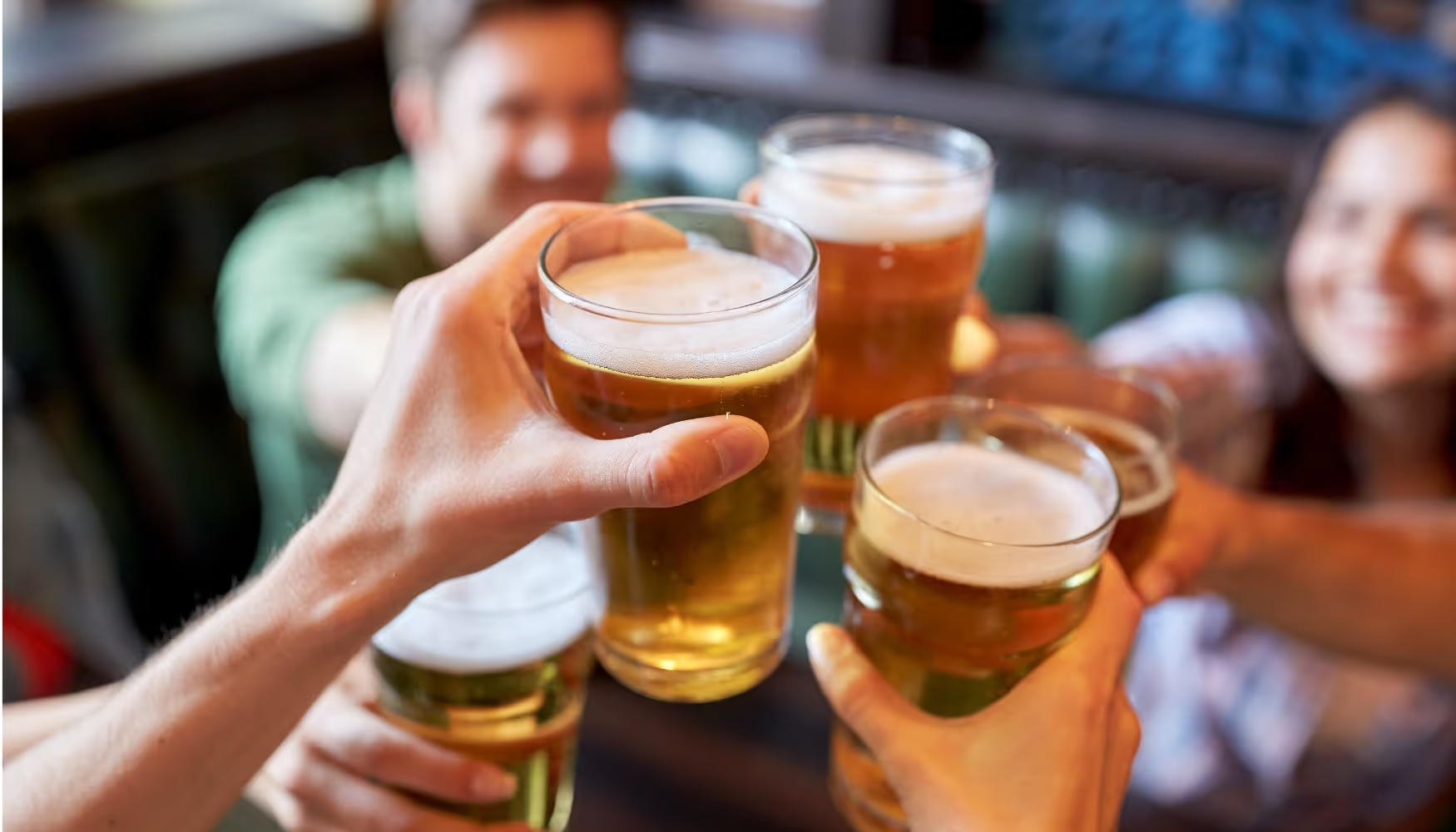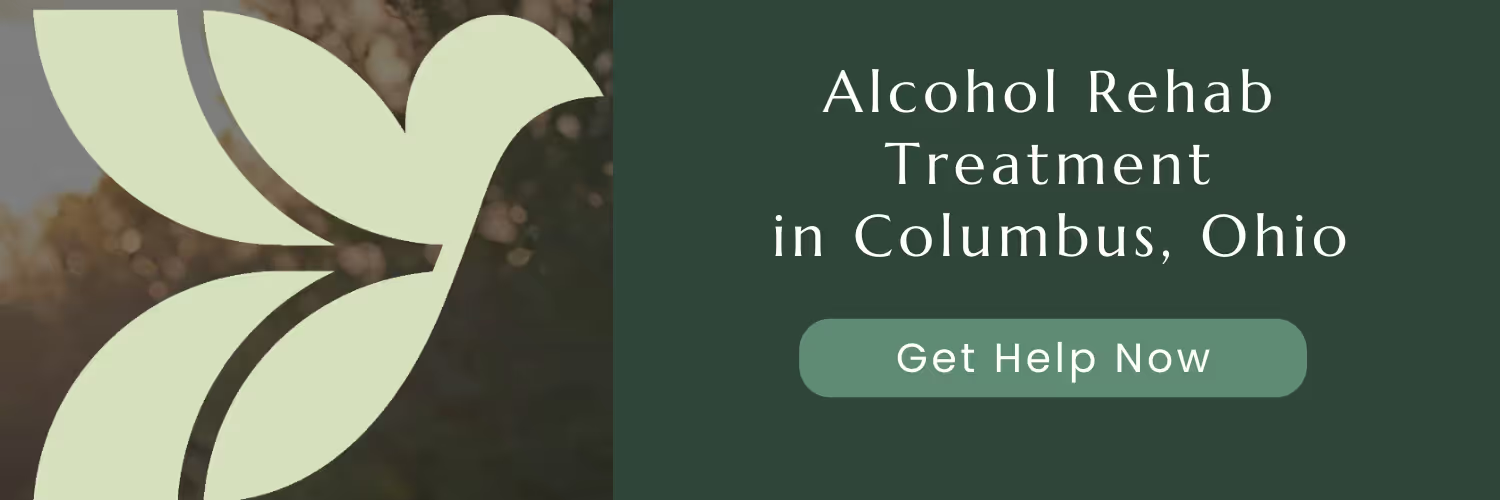Can Alcohol Cause High Blood Pressure? The Scientific Link Between the Two
%2520(1).avif)
Your weekly get-togethers often involve a drink or two and getting home from work may have you reaching for a beer before you sit down to relax.
Enjoying an occasional drink or a few alcoholic beverages a week seems harmless, right?
But did you know that even as little as two alcoholic drinks can increase your blood pressure?
In this article, you’ll discover the connection between alcohol consumption and high blood pressure. By delving into the science, we uncover the facts using key studies, and let you know where to seek help for alcohol recovery.
Table of Contents
- Can Drinking Alcohol Cause High Blood Pressure?
- 7 Reasons Alcohol Consumption Can Cause High Blood Pressure
- How Do You Fix High Blood Pressure From Alcohol?
- Can Alcohol Withdrawal Cause High Blood Pressure?
- Seek Alcohol Rehab at Dove Recovery To Help Improve Your Mental and Physical Health

Can alcoholism cause high blood pressure? The answer is yes.
Research says that moderate alcohol users are 53% more likely to develop high blood pressure (BP) than nondrinkers. Alcohol has numerous negative effects on the body, which can contribute to BP.
Are you concerned that alcohol is causing your high blood pressure, but struggling to cut back or quit? Dove Recovery is here to help. Our professionals have put together a 7-step process to cut back on drinking. If you need a more hands-on approach, our outpatient programs can be tailored to your needs. Give us a call to find a program that works for you.

#1: Nervous System Stimulation
A study revealed that alcohol significantly increases muscle sympathetic nerve activity among normal individuals. This system controls your “fight or flight” response, leading to increased heart rate, which narrows the blood vessels and increases BP.
#2: Hormonal Changes
Alcohol consumption affects the renin-angiotensin-aldosterone system (RAAS). The Journal of Clinical Endocrinology & Metabolism says that alcohol stimulates the release of renin, a hormone that works to regulate blood pressure, more than twofold. When excess renin is released, it results in the overproduction of the hormone aldosterone, which is responsible for water and salt retention in the body. Too much renin and aldosterone increase blood volume and vascular resistance, leading to high blood pressure.
Chronic alcohol use can also raise cortisol levels over time. Cortisol is a key stress hormone that can contribute to an increased heart rate and constriction of blood vessels, leading to high BP.
%2520(1).avif)
#3: Vasoconstriction
Hypertension Research concludes that heavy alcohol consumption causes most blood vessels to constrict. The tightening of blood vessels makes it difficult for blood to flow, leading to stress on the cardiovascular system.
Cardiovascular stress causes the heart to work harder, which can raise your blood pressure.
#4: Weight Gain
Moderate to heavy drinking can quickly add calories to your daily intake, contributing to weight gain.
A study published in The American Journal of Clinical Nutrition showed that heavy alcohol consumption contributes to an increase in body mass index and waist circumference. When a person becomes overweight, they are more likely to have an increase in blood pressure.
#5: Dehydration
Alcohol is a diuretic. It can cause your body to lose water and electrolytes more quickly than normal, resulting in dehydration. When your body is low on fluids, your body tries to correct the problem by producing vasopressin. When this hormone is released, it can cause your blood vessels to tighten and constrict blood flow.
#6: Sleep Disruption
After analyzing 27 studies, a 2024 study found that as little as two alcoholic drinks disrupt a person's ability to enter REM sleep. Alcohol can also worsen sleep disorders and lead to insomnia.
The less you sleep, the higher your blood pressure may rise. Sleep helps your body regulate hormones, and high BP can be caused by the fluctuation in hormone levels due to a lack of sleep.
#7: Inflammation and Oxidative Stress
Oxidative stress can cause a rise in blood pressure through inflammation and reduced blood flow. Chronic alcohol use can disrupt the body’s natural defense mechanisms, promoting reactive oxygen species (ROS) production and reducing agents that eliminate ROS. This imbalance causes oxidative stress, resulting in inflammation, damaged blood vessels, reduced blood flow, and high blood pressure.
Lowering alcohol consumption will reduce the chances of high blood pressure-related side effects. According to the American College of Cardiology, adjusting from heavy to moderate alcohol consumption can decrease the likelihood of developing high blood pressure from 69% to 53%. Avoiding alcohol altogether is the safest option for lowering your blood pressure.
If you want to reduce the amount of alcohol you’re consuming, take a look at how the CDC describes moderate and heavy drinking.
- Moderate alcohol consumption:
- For women – One drink or less a day
- For men – Two drinks or less a day
- Heavy alcohol consumption:
- For women – Eight or more drinks a week
- For men – Fifteen or more drinks a week
- Binge drinking – Four or more drinks on one occasion for women or five or more drinks on one occasion for men
These criteria are based on a standard drink size, which is equivalent to:
- 12 ounces of regular beer with 5% alcohol
- 8–9 ounces of malt liquor with 7% alcohol
- 5 ounces of table wine with 12% alcohol
- A shot or 1.5 ounces of liquor or distilled spirits with 40% alcohol
Consult your doctor for the best course of action to lower your high blood pressure.

If you want to start your recovery journey, know that your blood pressure can elevate during withdrawal due to the sudden lack of alcohol. The good news is, it’s typically a temporary effect, and abstinence should once again bring your blood pressure back to normal.
The withdrawal process can be daunting, especially when it causes symptoms like high BP. Undergoing your recovery at a trusted facility can be essential to your success. Dove Recovery specializes in guiding you on your road to an alcohol-free life through emotional support and medical stabilization.
Alcohol consumption has many negative effects on your body and mind.
Now that you know the facts behind alcohol’s contribution to high blood pressure, your next step may be to seek an alcohol rehab program that can help you through withdrawal and recovery.
At Dove Recovery, we offer:
- Intensive Outpatient Program (IOP)
- Partial Hospitalization Program (PHP)
- Outpatient Programs (OP)
- Detox Programs
Our compassionate team wants you to succeed and will be there every step of the way. Reach out today to create a personalized treatment plan that can encourage your success.

